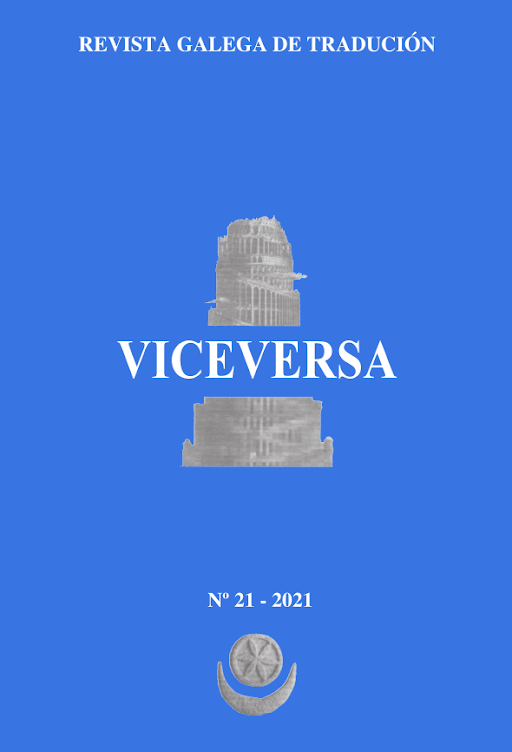Traducir para comprender. A propósito da violencia etnocéntrica.
DOI:
https://doi.org/10.35869/viceversa.v0i21.3492Keywords:
Alterity, comprehension, linguistic enrichment, fidelity, invisibility, unfaithful tradition, ethnocentric violence of translationAbstract
It is so common to expect a translation to sound natural, like an original text, that we hardly question this practice. However, it has very serious implications. A fluent translation is highly valued and certainly does not generate any controversy. But does it provide the reader with the tools that facilitate a better understanding of the text? In the unfaithful tradition, whose aim is to offer transparent translations, violating the target language is considered taboo. This is the way, however, to exert a very high degree of ethnocentric violence, as the reader is prevented from approaching linguistic and cultural alterity. Conversely, notes, atypical stylistic resources, the containment of “Galicianness” and terminological creativity make the translation visible in order to facilitate understanding and thus enrich the target language.



